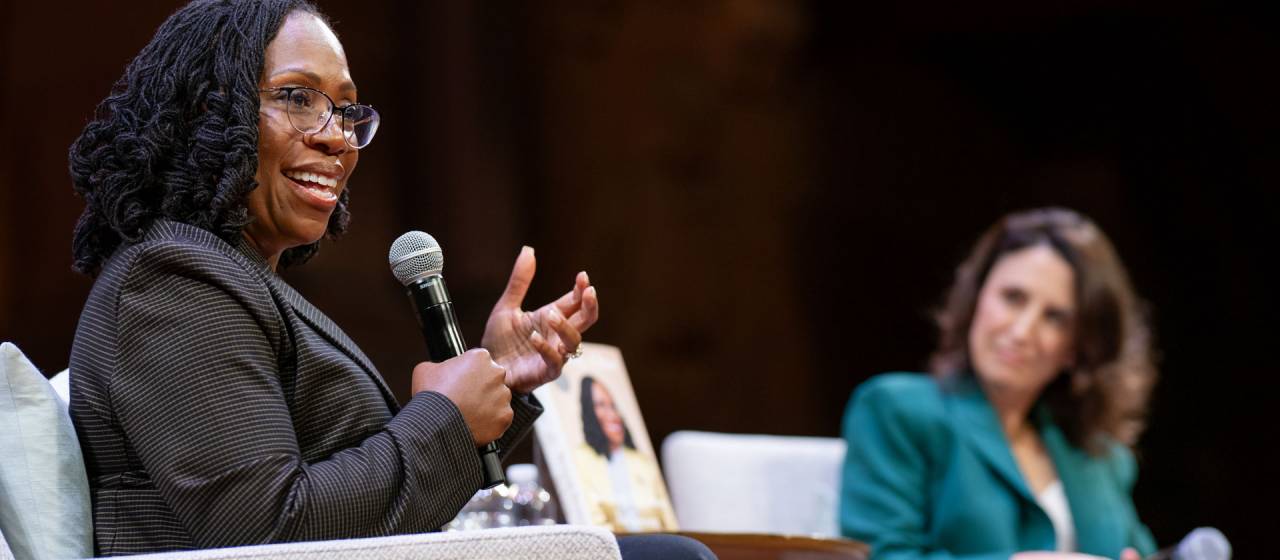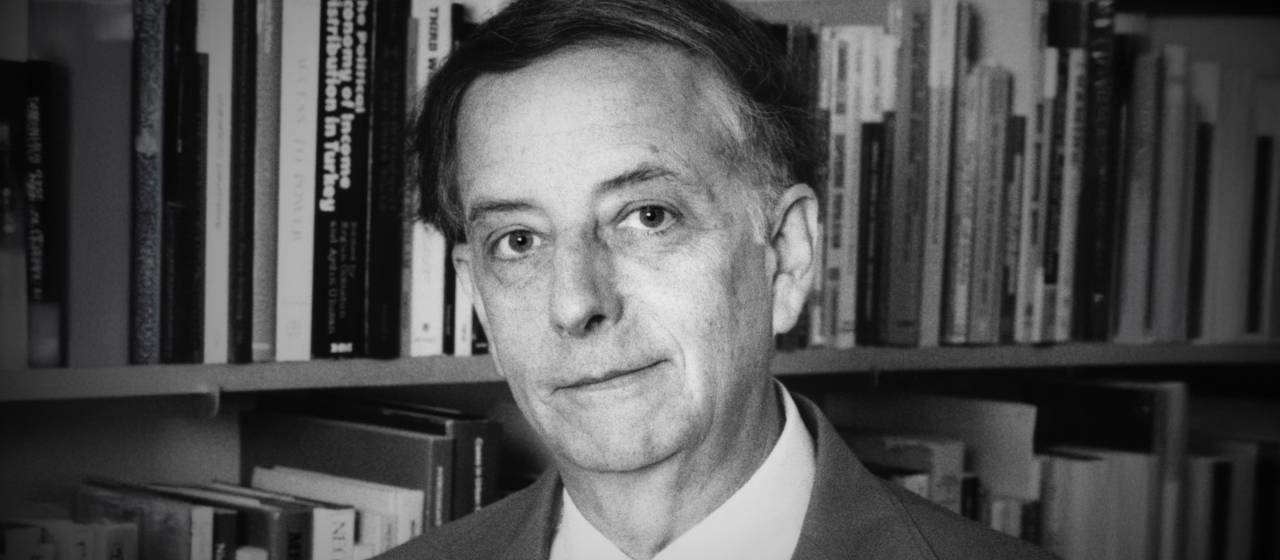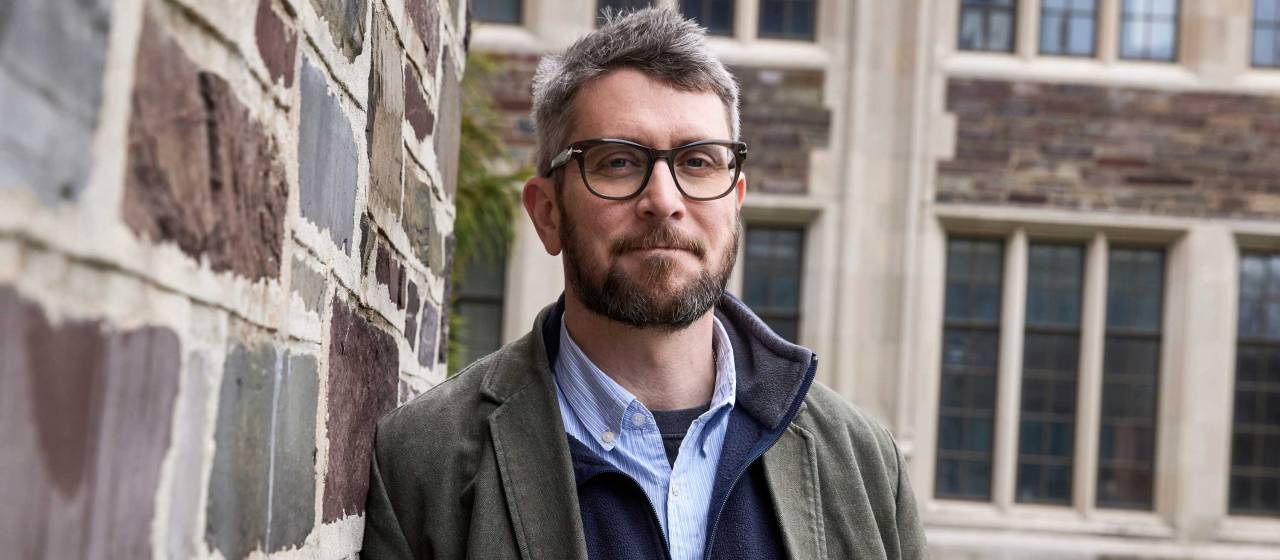Supreme Court Justice Ketanji Brown Jackson advises Princeton students to work hard for their passions
“When you’re trying to figure out what you want to do with your life, the key question is, ‘What am I willing to work for?’” U.S. Supreme Court Justice Ketanji Brown Jackson advised students on her first visit to Princeton University on Sept. 10. “‘What motivates me? What am I passionate about?’ Those are the things that you should do in this current climate.”
Jackson, who was appointed to the Supreme Court by President Joe Biden in 2022, then answered the question for herself.
“If I were back in school in this time, I would probably focus quite a bit on academic freedom, on knowledge,” she said. “That is really the root of all things in terms of liberty — which is really the core of what we're trying to do with the democratic process, to preserve liberty.”
Jackson delivered these remarks during the Justice John Marshall Harlan Lecture in Constitutional Adjudication, presented by the Program in Law and Public Policy at the Princeton School of Public and International Affairs (SPIA). Princeton President Christopher L. Eisgruber welcomed Jackson to the University and introduced her to the exuberant crowd of students at Richardson Auditorium.
“In just over three years on the Court, Justice Jackson has established herself as a bold and confident voice for a distinctive jurisprudential perspective,” Eisgruber said.
Harlan, the lecture’s namesake, was the sole Supreme Court justice to dissent in Plessy v. Ferguson, the landmark 1896 ruling that legitimized Jim Crow laws.

Students listen as U.S. Supreme Court Justice Ketanji Brown Jackson (left) speaks with Deborah Pearlstein (right) as part of the Justice John Marshall Harlan Lecture in Constitutional Adjudication. Pearlstein is director of the Program in Law and Public Policy at the Princeton School of Public and International Affairs, which presented the lecture.
The significance was not lost on Jackson, who opened with a reading from her book, “Lovely One,” about the challenges her parents and grandparents faced growing up in the segregated South. When she took the oath of office in 2022, Jackson signed Harlan’s Bible, a longstanding Supreme Court tradition.
“Here I was affixing my signature to his Bible in black fountain pen ink, only one generation after my mother and father had experienced the spirit-crushing effects of racial segregation in housing, schooling, and transportation,” she read from her book. “Their daughter was standing on the threshold of history, the embodiment of our ancestors’ dreams, ascending to a position that Justice Harlan and his colleagues likely never imagined possible for someone like me.”
Following the reading, Jackson sat down for a conversation with Deborah Pearlstein, director of the Program in Law and Public Policy at the Princeton School of Public and International Affairs and the Charles and Marie Robertson Visiting Professor of Law and Public Affairs. The two clerked on the Supreme Court together in 1999.
In subsequent years, Jackson served as assistant special counsel to the United States Sentencing Commission, where she spoke publicly about the need to retroactively eliminate the sentencing disparity between crack and powder cocaine convictions — despite knowing that to do so could risk her dream of being appointed a judge.
“I could have just voted and gone about my way,” she said, “but I decided that this issue was very important, and I wanted people to understand it.”
Jackson delivered a passionate speech on the topic, which she said may have ultimately helped her become a U.S. district judge in 2012.
“I think my speech was one of the things that got the Obama administration to think, maybe we should think about appointing her,” Jackson said. “It reminds me of the quote my father-in-law always says, which is, ‘Do the right thing and everything else figures itself out.’”
In her short stint on the Supreme Court thus far, Jackson has earned a reputation for pointed dissents and lively language. In an Aug. 21 opinion criticizing the majority’s order allowing the National Institutes of Health to cut $783 million in research grants, she referenced Calvinball from the comic strip “Calvin and Hobbes,” in which “there are no fixed rules. We seem to have two: that one, and ‘this administration always wins.’”
When asked about this by Pearlstein, Jackson talked about the importance of dissent in the democratic process.
“Dissents are an extraordinary aspect of our American legal tradition. I think they symbolize something that is core to who we are as Americans,” Jackson said. “We have a built-in mechanism for opposition to the majority and for tolerance of minority views. I just think it's spectacular that there is this opportunity for the people whose positions have not prevailed today to lay down a marker to explain why they think the majority has gotten it wrong, and to hopefully plant seeds for the future.”

(Left to right) Deborah Pearlstein, director of the Program in Law and Public Policy, Supreme Court Justice Ketanji Brown Jackson, President Christopher L. Eisgruber and Amaney Jamal, dean of the School of Public and International Affairs, are pictured before the lecture.













